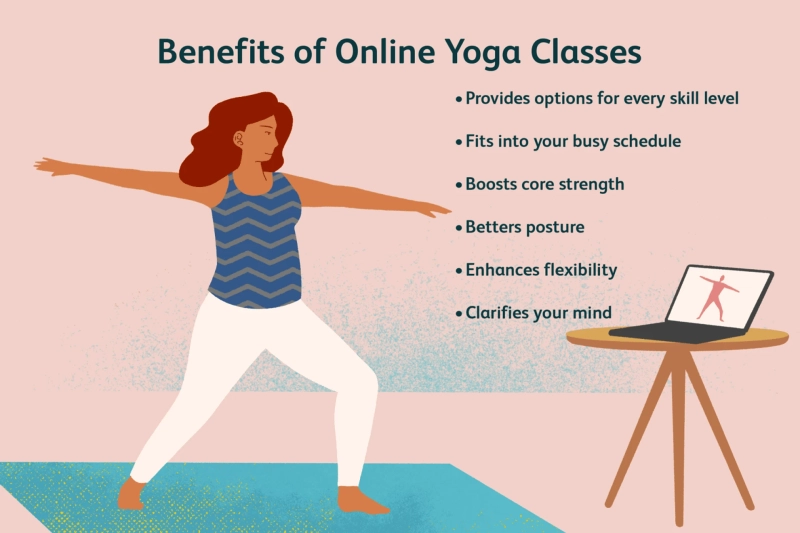In the rapidly evolving digital era, where time is of the essence, numerous individuals are exploring simple and easily accessible options for self-care in an effort to achieve balance and overall well-being. One such avenue that has gained significant popularity is online yoga classes. With the convenience of home, these virtual sessions provide a flexible and all-encompassing approach to wellness, enabling people to start a life-changing journey. The many advantages of taking online yoga classes and how they are transforming how people interact with this age-old practice will be discussed in this article.
Accessibility and Convenience:
The primary allure of online yoga classes is their accessibility. Geographical constraints and busy schedules no longer serve as barriers to practicing yoga. Regardless of your yoga experience level, you can choose from a wide variety of classes whenever it's convenient for you. This ease of use enables people to include yoga easily into their everyday schedules, encouraging a regular practice that improves general wellbeing.
Variety of Classes and Instructors:
Online platforms offer a plethora of yoga classes tailored to different preferences and skill levels. From gentle Hatha yoga to vigorous Vinyasa flow, there is a class for everyone. Furthermore, individuals can choose from various experienced instructors, each bringing their unique style and expertise to the virtual mat. This variety allows practitioners to explore and discover the type of yoga that resonates most with them, enhancing the overall experience.
Personalized Learning Experience:
Online yoga classes enable a personalized learning experience, catering to the specific needs and goals of each individual. With the ability to revisit classes, pause, and replay, practitioners can progress at their own pace. This flexibility empowers individuals to focus on specific postures, breathing techniques, or mindfulness practices that resonate with them, promoting a more meaningful and tailored journey to wellness.
Affordability:
Traditional yoga classes can be expensive, and the cost often serves as a deterrent for many potential practitioners. Online yoga classes provide a cost-effective alternative without compromising on quality. With affordable subscription plans and even free offerings on various platforms, individuals can enjoy the benefits of guided yoga sessions without breaking the bank.
Inclusivity and Community:
Online yoga classes foster a sense of inclusivity by welcoming individuals of all ages, abilities, and backgrounds. The virtual space encourages a diverse community of practitioners, creating a supportive and inclusive environment. Social media platforms and dedicated forums further enhance this sense of community, allowing participants to share experiences, ask questions, and connect with like-minded individuals on their wellness journey.
Conclusion:
As the world embraces the digital era, YOGA therapy have emerged as a transformative and accessible means of prioritizing wellness. These virtual sessions' convenience, variety, and customization enable anyone to start a yoga journey that suits their own requirements and preferences. In an age when self-care is essential, online yoga sessions provide a holistic approach to well-being, reminding us that the journey to a happier and more balanced existence can be carried out from the convenience of our own homes. Embrace wellness anywhere – the virtual mat awaits.


